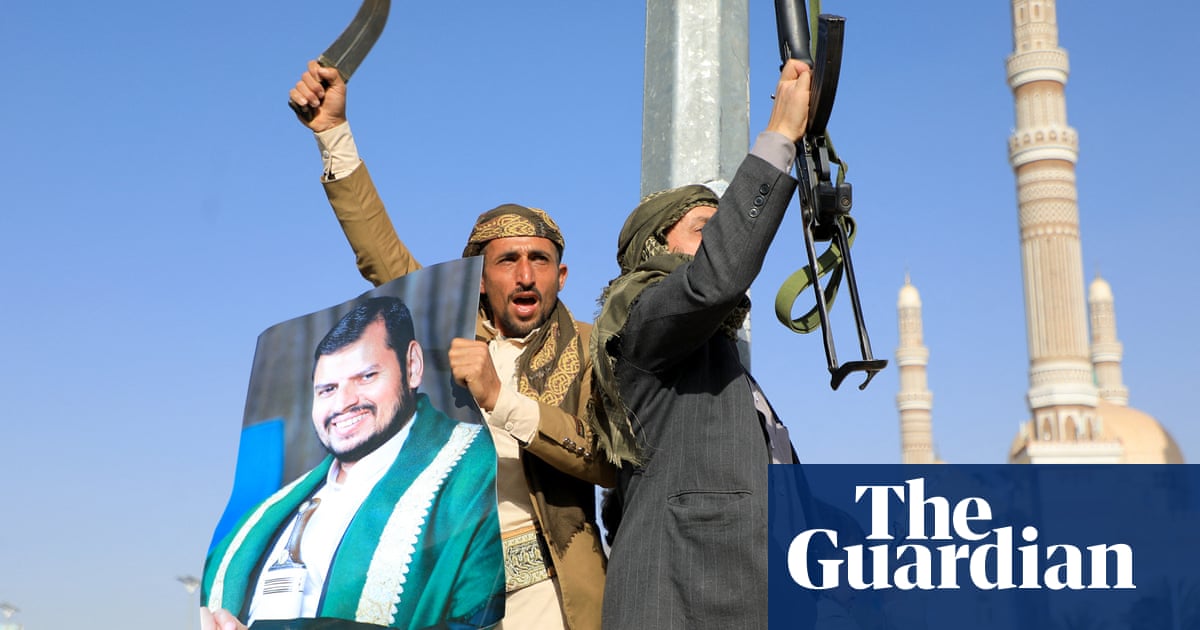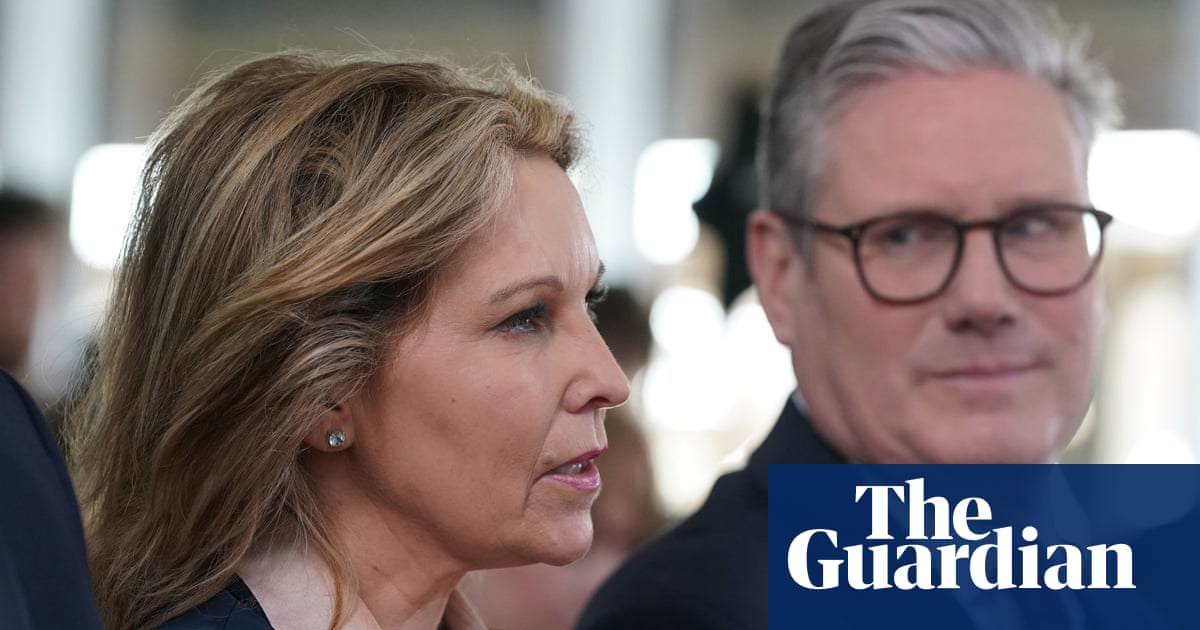
The near-official slogan of the Houthi movement is: “God is the Greatest / Death to America / Death to Israel / A curse upon the Jews.” Crowds of supporters in the group’s northern Yemen strongholds have been chanting it for more than 20 years, ever since the phrase was brought back from Tehran at the turn of the century, when it was first directed at the then Yemeni president, Ali Abdullah Saleh.
So those who claim the Houthis are not serious in attempting to block Israeli-linked trade in the Red Sea underplay the extent to which the defence of Palestine is a foundational principle of the Houthi movement, and highly popular among Yemeni people. The rebel stance over the past two months has afforded this relatively obscure Shia group a status in recent weeks that even Hezbollah in Lebanon cannot claim. They are deeply authoritarian, but skilled mobilisers of popular opinion.
And as far back as 2014, Houthi leaders discussed with clerics in Tehran how “the road to Jerusalem” lay through the Red Sea.
The narrowness of the Bab el-Mandab strait is a gift from geography. In August 2018, the Houthis attacked two Saudi oil tankers to challenge Riyadh. Knowing that a third of Israel’s trade was with the far east, the Israeli prime minister, Benjamin Netanyahu, responded by warning Iran and the Houthis not to block the waterways.
Houthi attacks since then have been marked by elements of bravado – but also sophisticated improvisation.
Starting in October and early November, Houthi forces launched missile and drone barrages targeting the Israeli port town of Eilat – even downing a US-made MQ-9 drone in the Red Sea region on 9 November. However, as the month progressed, the targets increasingly reverted to international shipping.
On 14 November, the Houthi military spokesperson, Yahya Sarea, announced that the group would “not hesitate” to target Israeli ships. Five days later, on 19 November, Sarea expanded the threat to any ships in the Red Sea flying the Israeli flag or operated or owned by Israeli companies. He also called on other Red Sea countries to assist in identifying Israeli-affiliated ships, which often sail without flags.
Within hours, Houthi forces pulled off a PR coup by hijacking the Galaxy Leader, a Japanese-operated cargo ship with links to the Israeli billionaire Abraham Ungar. The group released footage of the assault, in which masked men leapt from helicopters on to the ship and held the crew at gunpoint. The Houthis still have the ship, and their social media influencers suggest it could be a destination for tourists or even wedding parties.
By 9 December, with weekly big demonstrations stoked in the Yemeni capital, Sana’a, the Houthi leadership announced it would target all ships sailing to Israel regardless of ownership. It has been proud to publish pictures of the joint operations room in Hodeidah, a port that the west now regrets deciding not to try to recapture in 2019.
The Houthis were also willing to tweak the noses of the Gulf monarchies. As a neo-state actor – unlike Iran-backed militias in Iraq – the Houthis have also been keen to denounce them, especially their enemy Saudi Arabia, for failing to match its solidarity with Palestine.
For instance, the Houthi leader, Abdul-Malik al-Houthi, in a speech on 14 November said: “The scene in Saudi Arabia, while Gazans are murdered, is a form of moral and humanitarian apostasy and contrary even to tribal customs.” He denounced the series of international business conferences and cultural events in the kingdom as “the season of dancing and depravity”.
This also puts the Houthis’ many internal enemies potentially at a disadvantage, unsure whether to condemn Houthi adventurism or risk the appearance of abandoning the cause of Gaza.
For the most part, the Houthis’ domestic opponents, such as the increasingly influential president of the Southern Transitional Council, Aidarous al-Zubaidi, have not held back from criticising the group. On 18 December, Zubaidi visited the Bab el-Mandab strait area saying he was “leading defence efforts against Iranian-backed Houthi hostilities” challenging strategic trade routes. Tareq Saleh, a member of the anti-Houthi Presidential Leadership Council, also promised to protect the Bab el-Mandab strait.
Even after Thursday’s attacks, the deputy head of the department for media at the Yemeni General People’s Congress, Abdel Hafeez al-Nahari, blamed the reckless and adventurous actions of the Houthis.
One possibility is that the UAE and Saudi Arabia will decide to increase the price the Houthis pay by increasing their support to the forces in the south of Yemen, arguing that advances by land, and not missiles launched from offshore fleets, will eventually dislodge the Houthis.
At some point, the Houthis may fear they are throwing away too much to help Gaza. The faction is almost entirely reliant on imported foodstuffs and nearing bankruptcy, so throwing away the financial benefits of the potential peace deal with the Saudis – including the payment of outstanding civil service wages – would be a big sacrifice.
Ultimately, it may be the spoils of peace – rather than the threat of western war – that will persuade the Houthis to hold back.












